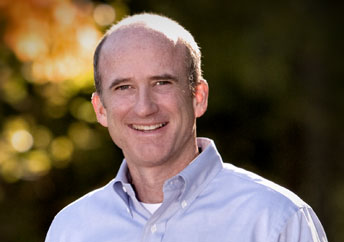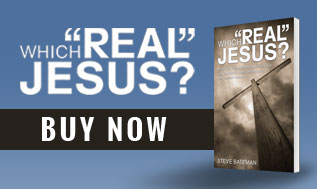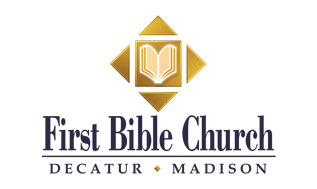In a provocative opinion piece for the Washington Post, Collin Hansen asserts that this election “is the last spastic breath from the Religious Right before its overdue death.” I know Collin to be someone who knows, loves, obeys, and exalts Jesus Christ. He is thoughtful, well-read, and uncommonly aware of what is happening in the wider evangelical world. I think this article, and other pieces he has written, are worthy of our thoughtful consideration.
The article questions the wisdom and integrity of leading evangelical pastors who have publicly and enthusiastically endorsed Donald Trump. It is the author’s way of saying to the world that these high-profile evangelicals do not speak for him or for many other evangelicals who share his concerns. He does not charge all evangelicals who vote for Trump with hypocrisy, though some readers have taken it that way. That has proven to be a distraction. Some Christians who will vote for Trump are probably hypocrites, but not all. Many are not hypocrites (insofar as any of us can avoid hypocrisy) and will vote for him as a matter of conscience, believing that it is the most loving thing to do for their neighbors.
However, the central premise of the article, which could be missed entirely, is this: In the next few years, the Religious Right, as a political movement which began in the ‘70s, will have lost most of the influence it thought it had. For decades, many Christians have placed more trust in the power of politics over the power of the gospel, flexing political muscle, and taking cues on conducting political discourse from an unbelieving world rather than God’s Word. Politicians have pandered to, and manipulated, the “evangelical voting bloc” for decades, and not a few Christian leaders have enjoyed the seductive power of political influence. But younger evangelicals have largely grown weary of the angry rhetoric, the often naïve understanding of American history (especially regarding the religious beliefs of the Founders and the notion of a “Christian Nation”), the odd penchant for conspiracy theories, and the overall alarmist hyper-anxiety about the future that is coming from people who profess to follow the sovereign King of kings. These younger evangelicals are turning away from power politics and many of them are turning away from the church because of the hypocrisy they detect in older generations.
That apparent hypocrisy is pronounced in the Trump candidacy because younger evangelicals see certain evangelical leaders, in their public endorsements, dismiss the moral unfitness of Donald Trump as if character doesn’t matter, when just a few years ago, many of these same leaders were calling for the impeachment and resignation of Bill Clinton over his similar moral unfitness because character does indeed matter. So does character matter or not? If I was a younger evangelical, I might be asking the same thing.
To compound the problem, several of the character issues involved are sexual in nature. Many of the most controversial issues of the day, that we as evangelicals are concerned about, are directly linked to sexual ethics. Abortion, divorce, the breakdown of the family, the mistreatment of women, the Supreme Court’s re-definition of marriage, and several of the mandates of Obamacare, are all tied to sexual ethics. It seems only fitting that he who would be our champion of sexual ethics would demonstrate respect for said ethics in his personal life. Without that credibility and moral authority, he will be easily defeated in any public debate on these matters.
Furthermore, every poll indicates that this Republican candidate is receiving historically low support from African-Americans. Many try to explain this by complimenting the Democratic party on its salesmanship, but are they really prepared to say that 95% of African Americans are that naïve? Maybe there is something else going on here. Younger evangelicals have done a better job in working for racial reconciliation than their predecessors and they have more sensitive ears when it comes to this issue. And in this, they lead us.
Yet the Democratic candidate is likewise ethically-challenged and several planks in the platform she stands on are just too much for many, probably most, principled evangelicals to concede. But the appearance of evangelical hypocrisy is heightened when professing Christians attach exaggerated, demonizing, over-the-top labels to people made in the image of God. And both candidates are made in the image of God. Even if a candidate is a political enemy, Jesus’ command to love our enemies and pray for them still applies.
So should you vote at all? Absolutely. I know I will. How should you vote? That is for you to decide. If any of my friends ask me in private conversation, I always tell them what I intend to do. But more than any other presidential election in my memory (this is my 14th) the answer for evangelicals is proving to be unclear, and we are a divided lot. To vote, or not to vote, or vote for a third-party? That is the question. Good, godly, smart, theologically astute people disagree on this question.
In my opinion (as a private citizen of the United States of America exercising my first amendment rights) we should vote strategically and with a long view, in a way that is most likely to uphold the sanctity of human life, whether born or unborn, black, brown or white; in a way that honors the sanctity of marriage, one man, one woman, for life; in a way that shows the most love to our neighbors, whether believers or unbelievers; in a way that most advances our national peace and prosperity; in a way that is most likely to protect and preserve the Constitution and guard the Bill of Rights, in particular the First Amendment guarantee of religious liberty; in a way that is most likely (realistically) to secure our borders and defend our citizens from Islamic terrorism and all other enemies, both foreign and domestic; in a way that is most likely for us to maintain a credible witness as followers of Jesus to a lost, dying, and watching world. And throughout this ordeal we call the Election of 2016, we must recognize that other evangelical brothers and sisters may, after much prayer and study, arrive at a different conclusion from ours about how to do that. Their considered rationales and voting strategies are easily available online for those with the intellectual curiosity to search for them.
So yes, my fellow evangelicals, let’s stay wisely engaged in the political process while praying that as brothers and sisters in Christ, we might have, “in essentials unity, in non-essentials liberty, and in all things, charity.” And along the way let us think twice, perhaps three times, before we disparage each other’s loyalty to Christ and love of country.
23




